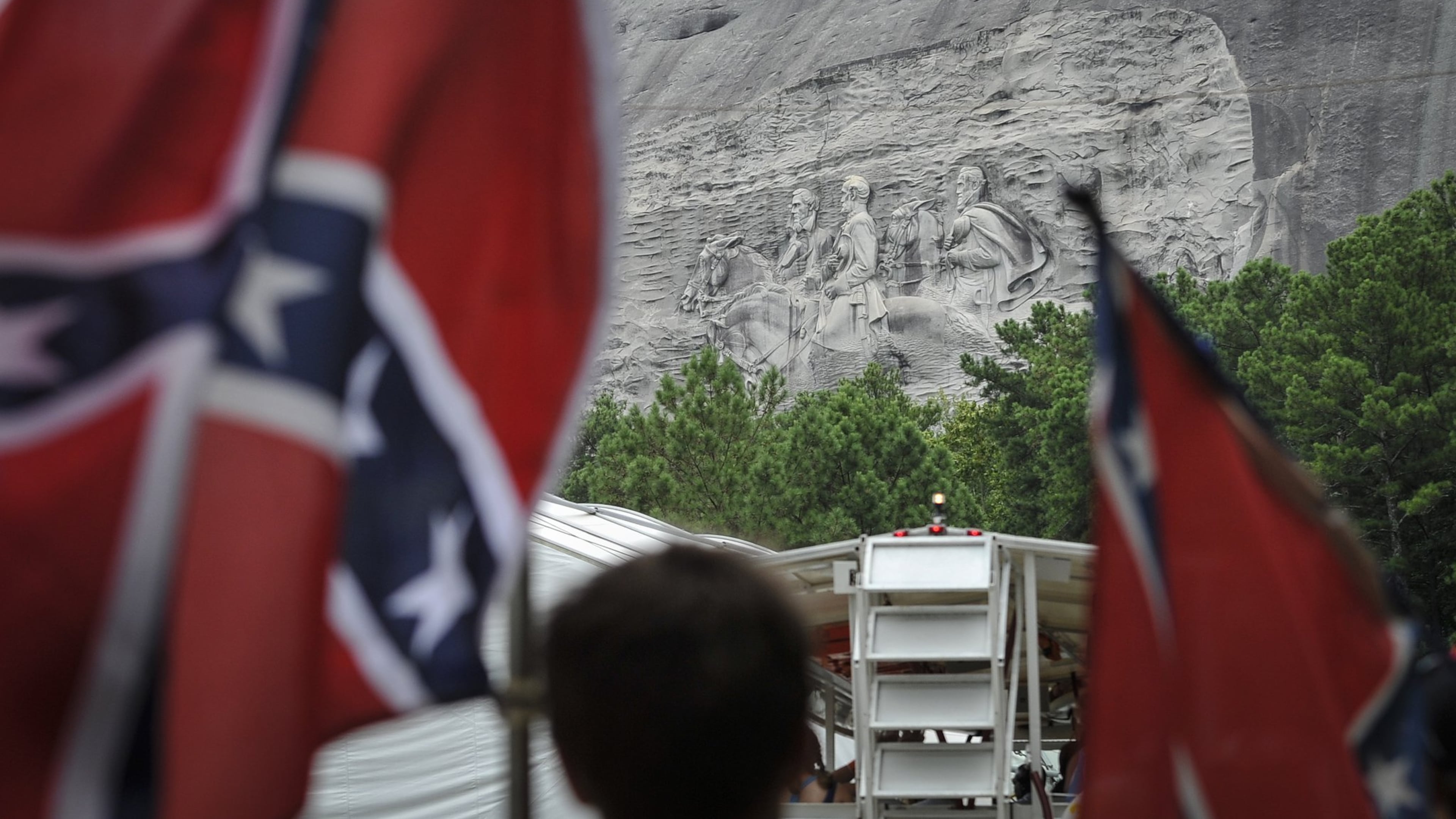Groups call on Stone Mountain to cancel Confederate event

The Southern Poverty Law Center Wednesday joined a growing chorus of activist groups calling on the Stone Mountain Memorial Association to cancel a planned Confederal Memorial Day rally scheduled for the park Saturday, citing a legacy of racial hatred and violence connected to such rallies.
“Hate groups have a history of rallying in defense of Confederate monuments,” the Montgomery, Ala.,-based watchdog group wrote in an email to supporters and activist groups in Georgia. “Activism aimed at preventing the removal of these monuments has brought together a variety of extremist actors, propelled them into the streets, and created violent confrontations.”
The DeKalb County NAACP and the Stone Mountain Action Coalition previously had issued calls asking the board to reconsider its decision last month to approve a permit application by the Georgia Division of the Sons of Confederate Veterans.
The Rev. Abraham Mosley, chairman of the SMMA board, a state authority that oversees management of the park, acknowledged the calls asking the board to pull the permit, but he said there are no plans to do so.
“Right now we are going forward with it,” he said. “People have a right to free speech.”
The park and its gigantic carving of Confederate leaders has been a backdrop for the cultural battle over Confederate iconography since the issue heated up in the wake of the 2015 Charleston massacre where an avowed white supremacist killed nine Black churchgoers at the Emanuel African Methodist Episcopal Church. Since then states, counties and cities have moved or taken down hundreds of monuments to the Confederacy and done away with ceremonial displays of the Confederate battle flag.
It’s been more difficult at Stone Mountain. Not only is a 17,000-square-foot carving difficult to conceal, but state law enshrines the park as a Confederate memorial, despite the fact that the site has no relevance to any Civil War battle or historical figure.
As a result, the park has become a battleground for heritage groups, far-right extremists, and leftist counter-demonstrators.
In 2019, the SMMA denied a permit submitted by white supremacists for a rally timed to coincide with the Super Bowl in Atlanta, citing public safety risks. When the group vowed to show up anyway, the park closed rather than host it.
In 2020, the park again closed its gates rather than host a rally organized by far-right militias, sending the groups and counter-protesters into the neighboring village of Stone Mountain where they faced off, with many on both sides carrying firearms, mace and other weapons.
Last year, the park denied a permit to the same SCV group that plans to hold its rally Saturday. At that time, SMMA CEO Bill Stephens cited “a clear and present danger to public health or safety” for denying the permit.
In an interview Wednesday, Mosley said things are different now, and he said the park is in a better position to keep the peace.
“We’ve got our ducks in a row with the State Patrol and other officers in DeKalb County,” he said.
When asked if the park is still an appropriate venue for a rally celebrating the Confederacy, Mosley, who is Black, defended it.
“It’s history, and I think people have a right to the legacy of their family, whether good or bad,” he said. “I’ve gotten tons of emails telling us to cancel it, but it’s history.”
But the mountain’s history is complicated. The mountain was the site for the rebirth of the Ku Klux Klan in 1915 and the hate group held regular cross burnings atop the rock for decades. In discussing the carving, the Atlanta History Center cites its “strong connections to white supremacy, Confederate Lost Cause mythology, and anti-Civil Rights sentiments” and notes that finishing the carving in the 1960s was linked to Georgia’s resistance to federally mandated integration and civil rights.
Recently, the park has taken steps to distance itself from that history, including removing the carving from its official logo.


